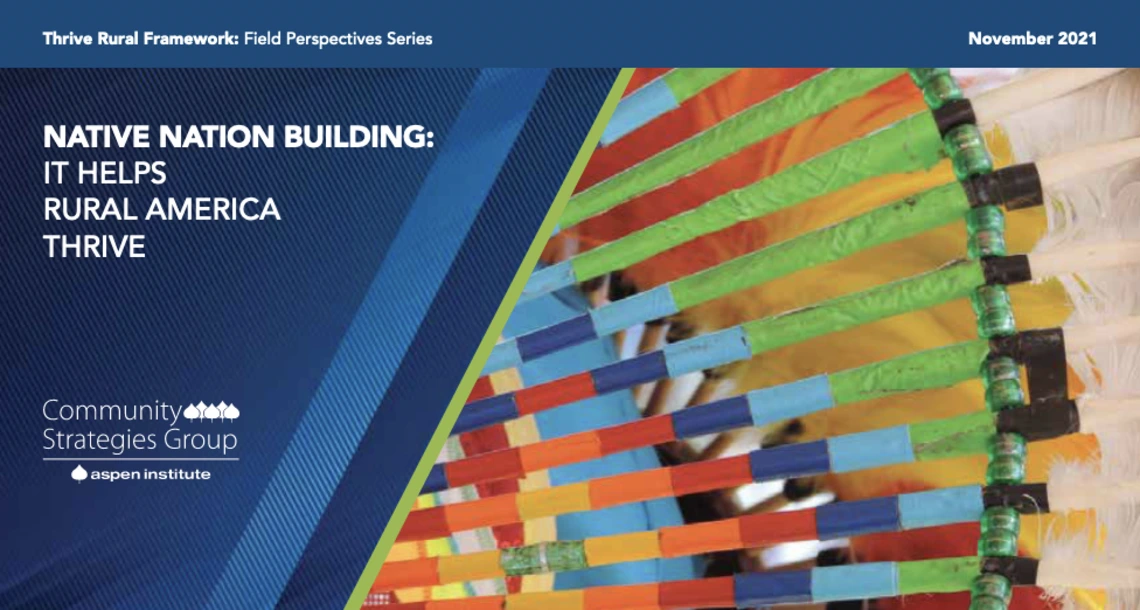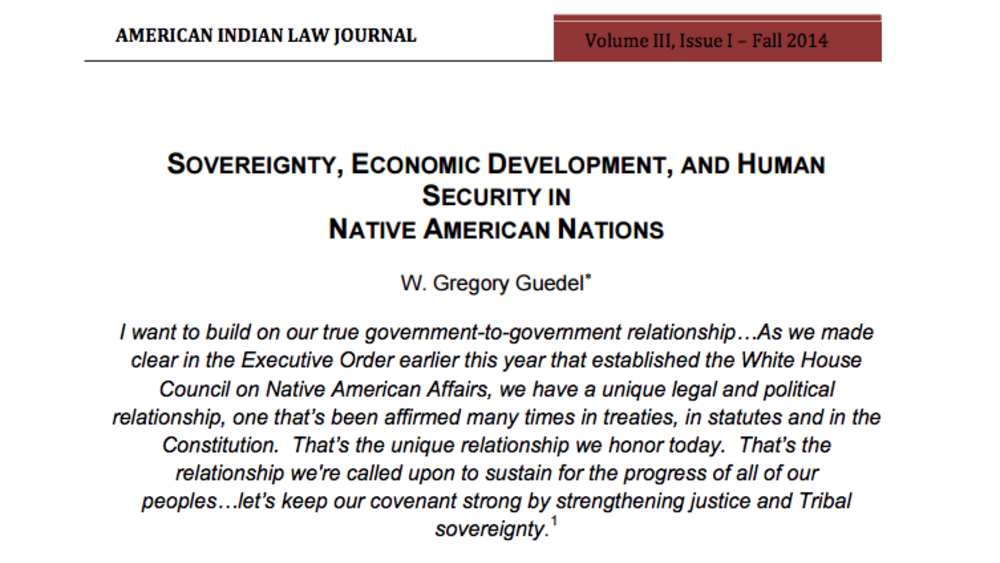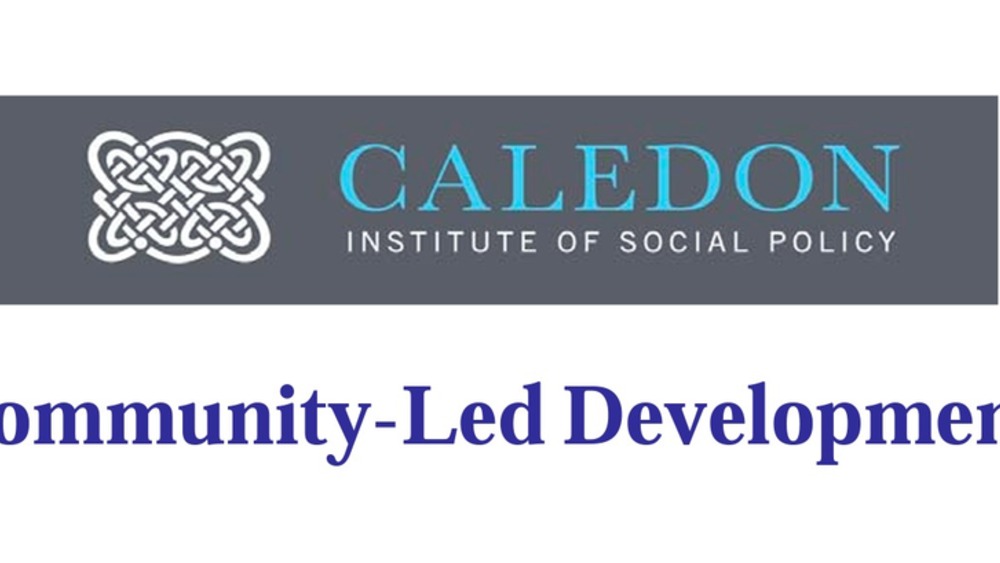This second paper in the Aspen Institute's Thrive Rural Field Perspectives series shows that when tribes center sovereignty, Indigenous institutions and culture in their development processes they increase the probability of reaching their development goals and can build community wealth that is more in line with tribal values and lifeways. The authors also highlight how Native nations and rural communities, working both side-by-side and together, can strengthen the potential for thriving rural regions.
Additional Information
M Jorgensen & S Gutierrez. 2021. Native nation building: It helps rural America thrive. Community Strategies Group, Aspen Institute, Washington, DC. November.




